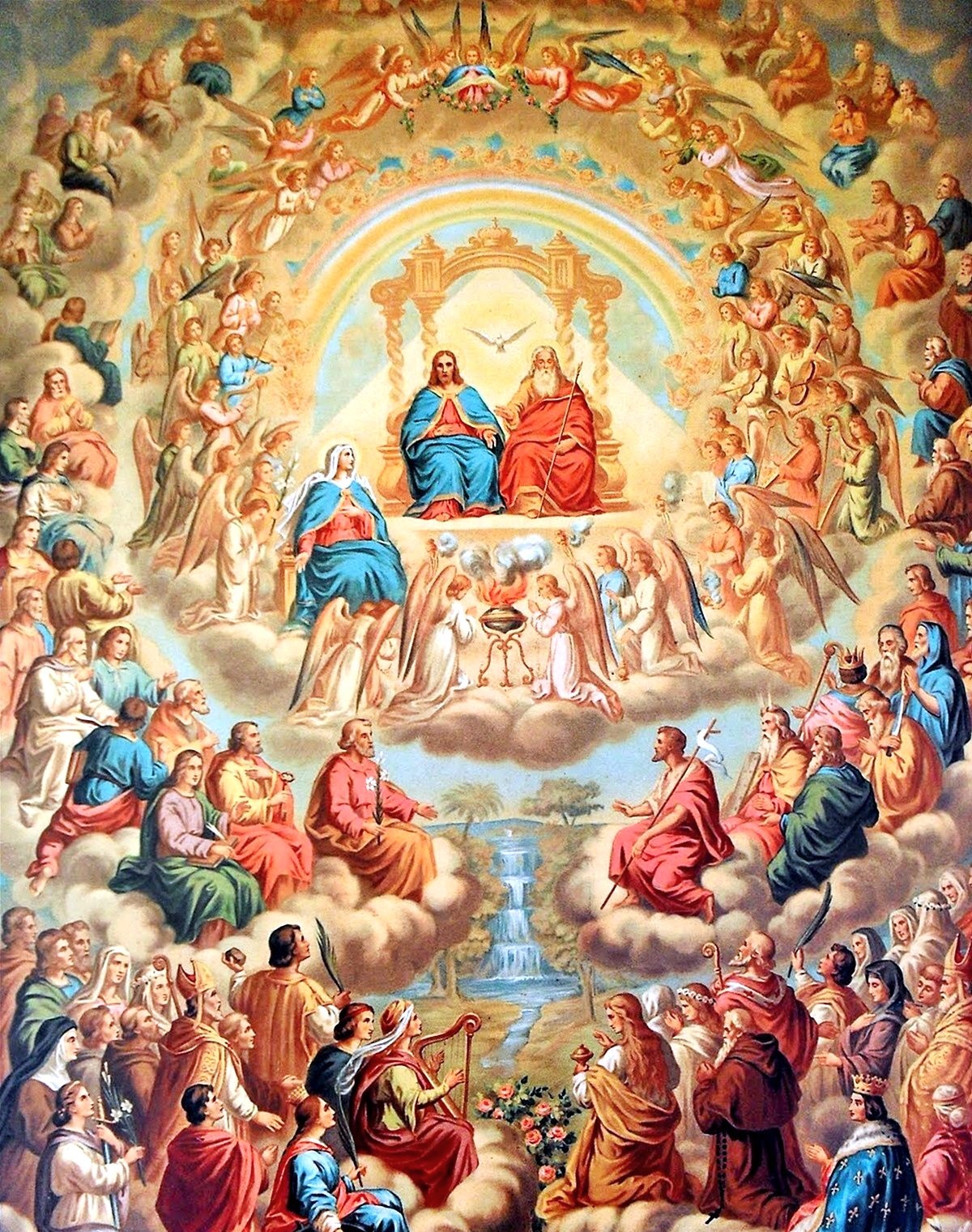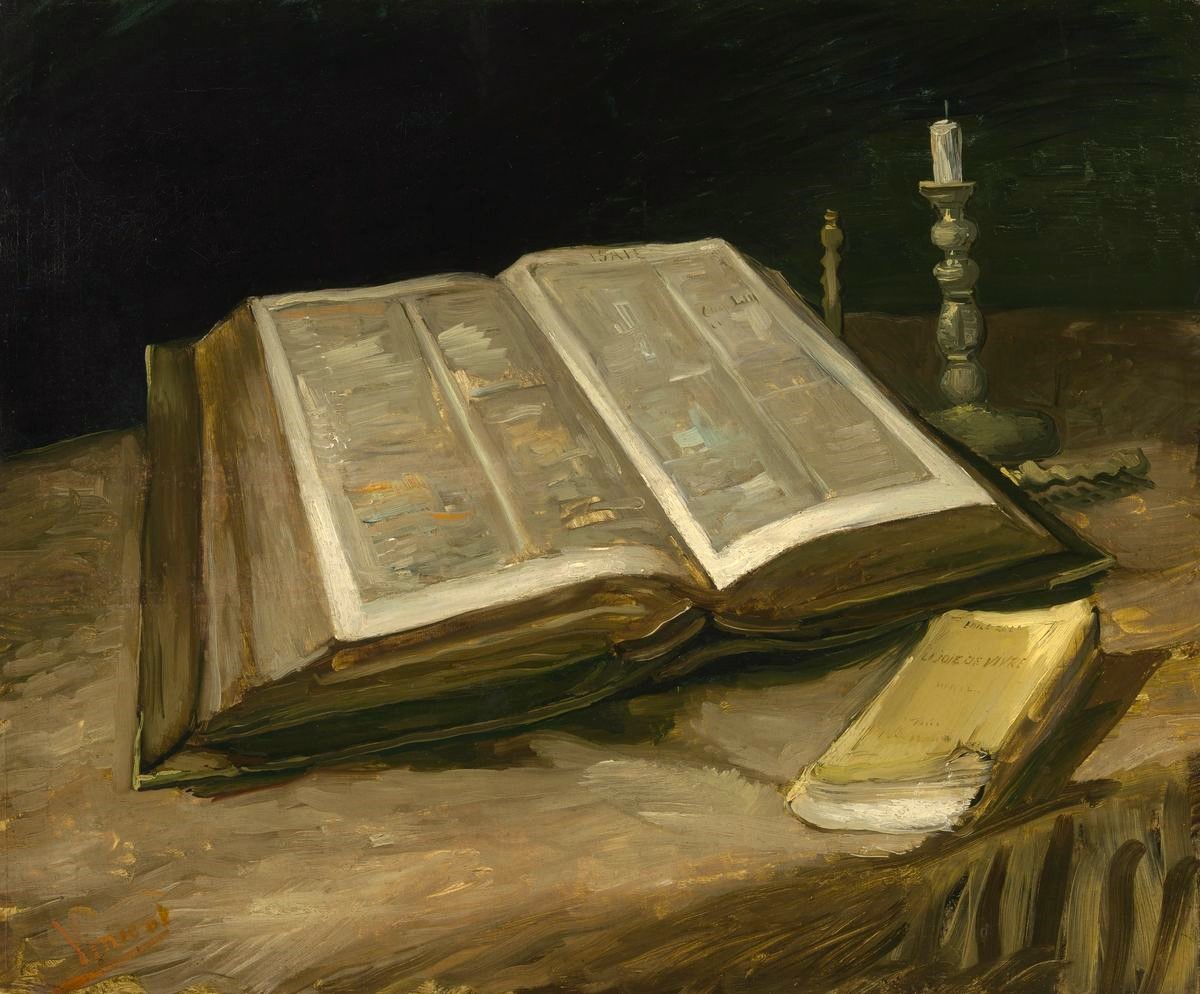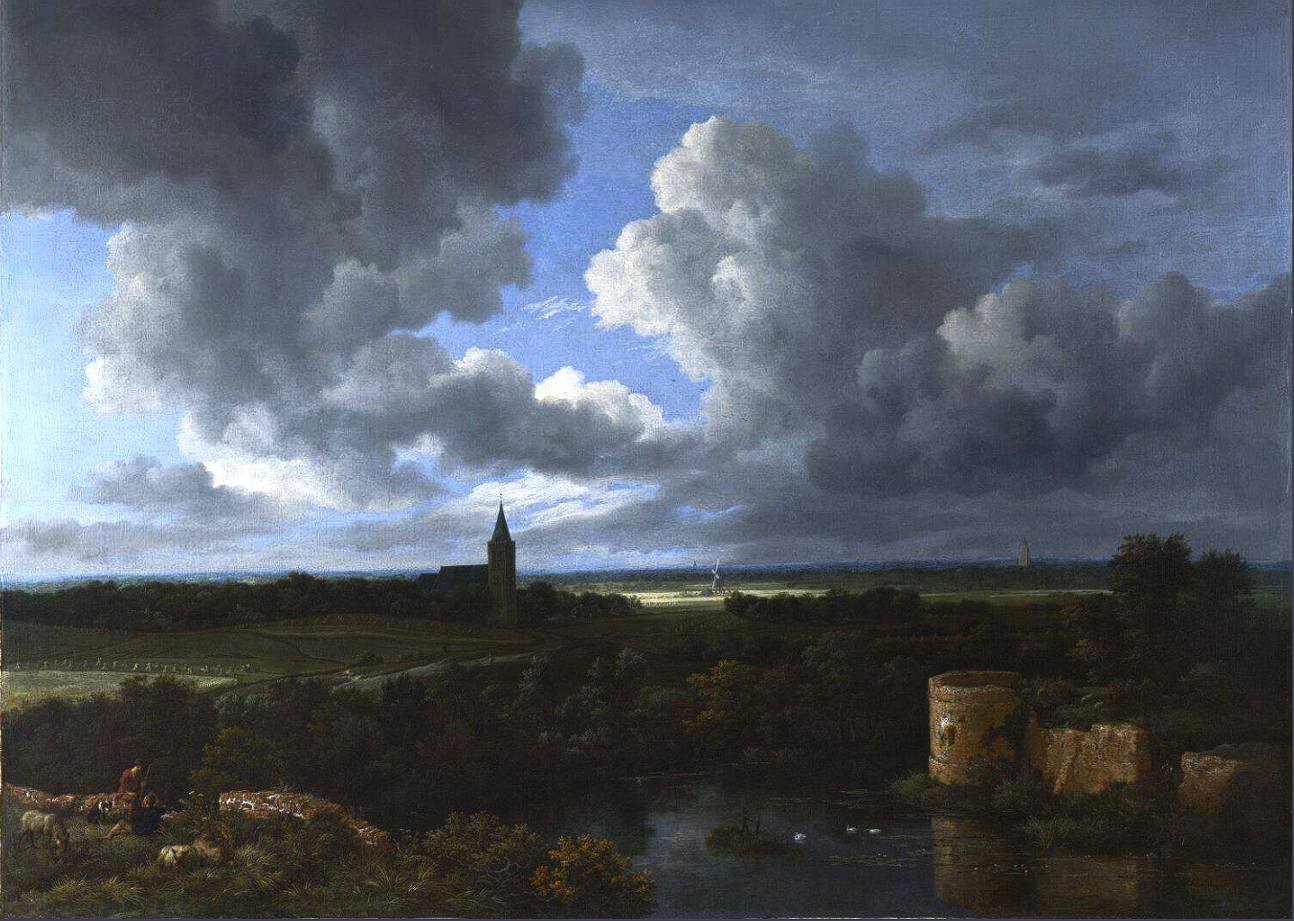Pinned Post![]()
A Reading from the Gospel According to John
Jesus said to his disciples: “If you love me, you will keep my commandments. And I will ask the Father, and he will give you another Advocate to be with you always, the Spirit of truth, whom the world cannot accept, because it neither sees nor knows him. But you know him, because he remains with you, and will be in you. I will not leave you orphans; I will come to you. In a little while the world will no longer see me, but you will see me, because I live and you will live. On that day you will realize that I am in my Father and you are in me and I in you. Whoever has my commandments and observes them is the one who loves me. And whoever loves me will be loved by my Father, and I will love him and reveal myself to him.”
In the Name of the Father, and the Son, of the Holy Spirit. Amen.
Transcription of Sermon
The world cannot know me because it doesn’t receive me or hear me.
In the Name of the Father, and of the Son, of the Holy Ghost. Amen.
When the Archbishop asked me to come back to St. Anthony’s for a little while, I didn’t have to think twice about it. It’s very easy. Yes. To come back to the place where I spent the happiest years of my life and so I’m very grateful to be here. And I ask your prayers for my short time here during May and June.
In today’s Gospel, we hear about this gift that our Lord is giving. St. Thomas says that when something is truly a gift, there’s no return ticket; it’s given forever. And so, this receptivity, then, this reception of the gift brings with it not only some benefits, obviously, and perks, but it also brings with it responsibilities. Every right implies a responsibility. People clamor for their rights; few people clamor for more responsibility. But they go together, and you can’t separate rights from responsibilities. So, Our Lord alludes to this, in fact, when He speaks about the relationship between love and obedience.
Love without obedience, then is sentimentalism. It’s frenetic. It doesn’t follow an order. It’s passionate, and our passions are disordered. Obedience, on the other hand, without love makes little sense. It doesn’t really serve our Lord’s purposes, or ours, because it’s mechanical fulfillment. When Our Lord speaks about this distinction between the world and those who have received the Holy Spirit, He alludes to a couple of things that the world is incapable of. He says the world cannot receive Him because through whatever choices one makes, according to the spirit of the world, we decide to fill our hearts with something less than Our Lord, and we find our satisfaction in that.
He also says the world doesn’t know Him. Obviously, know in Scripture means an intimate knowledge. It’s an experiential thing. We can, perhaps, remember certain cases where people outside of the Church speak about the Church, and we know that they’re not speaking about it as those who have lived it. They just speak about some external element, or at least whatever internal element they’re speaking about, but they’re looking at it from the outside. I remember when the New Catechism came out hearing a reporter on ABC saying that the New Catechism of the Catholic Church has just come out and these are the new sins that the Church has invented. Well, that’s not really a fair assessment of the Catechism. And if you’re outside of the Church, I guess that’s what it looks like. But we don’t see sin as breaking rules and the Church doesn’t have like a basement office in the Vatican trying to come up with new rules to break.
Sin is not a breaking of rules, it’s a breaking of a relationship with our Lord. And so, everything is relational. When we choose a vice, we not only choose to break the relationship with Our Lord, we also establish a new relationship with a demon of that particular vise. So, everything is relational; our sins, our virtues, our sacraments, our disorders.
Our Lord says the world cannot receive Him, it doesn’t know Him, it doesn’t see Him. Well, I don’t know anyone here, or I certainly haven’t seen the Holy Spirit. So, what does this “see” mean? It’s in the order of understanding. And so, rather, than seeing a divine person, Our Lord is alluding to the Light of Faith. And this Light of Faith isn’t an object we see, it is more of a prism through which we see. It’s a lens, which translates the world, Our Lord, ourselves, our relationships, everything we do, and this lens is Christ Himself. As John Paul II says, Jesus of Nazareth reveals man to man. And so, in seeing Christ, and knowing Christ, and receiving Christ, those three verbs, accepting, or receiving, understand, knowing, and seeing, we start to understand ourselves. So, Christ then becomes, really, the touchstone through which everything else is understood.
There isn’t a problem in this text, obviously, these are the words of Our Lord at the Last Supper, so they’re perfect. And in Sacred Scripture, the Church teaches us that there is no word left out that should have been revealed, and there are no words that are superfluous, but there can be problems more along the lines of our understanding of this text, and the problem is more in us in which we can be tempted to set ourselves apart from the world in seeing the “world” as “that lot there”, “those people who don’t know Our Lord”, “those people who don’t belong to the Church”, and we can develop a certain Gnostic understanding of ourselves in which we don’t see that all that disorder that we see around us is also in here. And that’s not a problem. It’s just a situation. But it’s one that has to be addressed.
Thanks to our fallen nature we have all sorts of challenges, added challenges, not problems, challenges such as our darkened intellect as a result of the fall. But we’re not left to our darkened intellect. Our Lord gives us what’s called Revelation, the Light of Faith, the Natural Law. We also have this interior disorder of our passions, concupiscence, anger, vanity, all of these things that are seemingly at odds with Our Lord’s plan and, nonetheless, don’t have to be. Our passions are not a problem. They’re not absolutely corrupt, as Calvin would say. There is a disorder there but our challenge is to reorder our hearts and affections, our passions, towards the heart of Christ.
That’s why he revealed Himself with a Sacred Heart so that in the first instance of temptation, or peak passions, I turned towards Him: “Lord, I love you infinitely more than this passing temptation”. And so, my passion, my temptation becomes an occasion for holiness. So, we’re not set up for failure. Our Lord has given us the gift of the Holy Spirit, but this Holy Spirit wants our cooperation. And cooperation with Him, a certain teamwork with the Holy Spirit, then assures victory, but it’s got to be in the first moment, in the first moment of a peaked passion. That’s the moment of grace where everything is decided. And when I turned towards Him in that first moment, then there’s no gray area of “Did I consent, or did I not consent?” What did my will do in the first moment of awareness that will determine whether this was, this existential choice that I made, was it for vice or virtue, for Christ or perdition?
I think sometimes when we look at the disorder around us, even disorder in the Church, in the world certainly, we can fall into a false dichotomy thinking that we are saved from that. We’re not saved until we see the Face of God in heaven. And John of the Cross, my favorite spiritual writer, who’s not really known for a saccharine spirituality filled with warm and fuzzies, doesn’t let us down with his little quote at the beginning of what’s called his Spiritual Canticle. He says:
The soul, considering the obligations of its state, seeing that “the days of man are short;” that the way of eternal life is straight; that “the just man shall scarcely be saved;” that the things of this world are empty and deceitful; that all die and perish like water poured on the ground; that time is uncertain, the last account strict, perdition most easy, and salvation most difficult; and recognizing also, on the other hand, the great debt that is owing to God, Who has created it solely for Himself, for which the service of its whole life is due, Who has redeemed it for Himself alone, for which it owes Him all else, and the correspondence of its will to His love; and remembering other innumerable blessings for which it acknowledges itself indebted to God even before it was born: and also that a great part of its life has been wasted, and that it will have to render an account of it all from beginning to the end, to the payment of “the last farthing,” when God shall “search Jerusalem with lamps;” that it is already late, and perhaps the end of the day: in order to remedy so great an evil, especially when it is conscious that God is grievously offended, and that He has hidden His face from it, because it would forget Him for the creature,-the soul, now touched with sorrow and inward sinking of the heart at the sight of its imminent risks and ruin, renouncing everything and casting them aside without delaying for a day, or even an hour, with fear and groanings uttered from the heart, and wounded with the love of God, begins to invoke the Beloved.
So, John, in these terms, is telling us that there is a spiritual combat, and our heart is the battlefield and precisely the full of the world, the full of my passions, all of these things, we know, each one of us from our own experience, don’t deliver the promised goods. And our Lord, on the other hand, is faithful.
And so, the struggle is not a problem. It becomes an opportunity to renew our love for Him, to grow in a love for Him, to call things by their name. If I’m filling myself up with cotton candy, the things of this world, the heavy steak that our Lord wants to give us is not going to be very appetizing. When I fast from the things of this world, we start to develop a taste for the sweetness of our Lord and find in Him our only joy and salvation.
— Fr. Ermatinger



